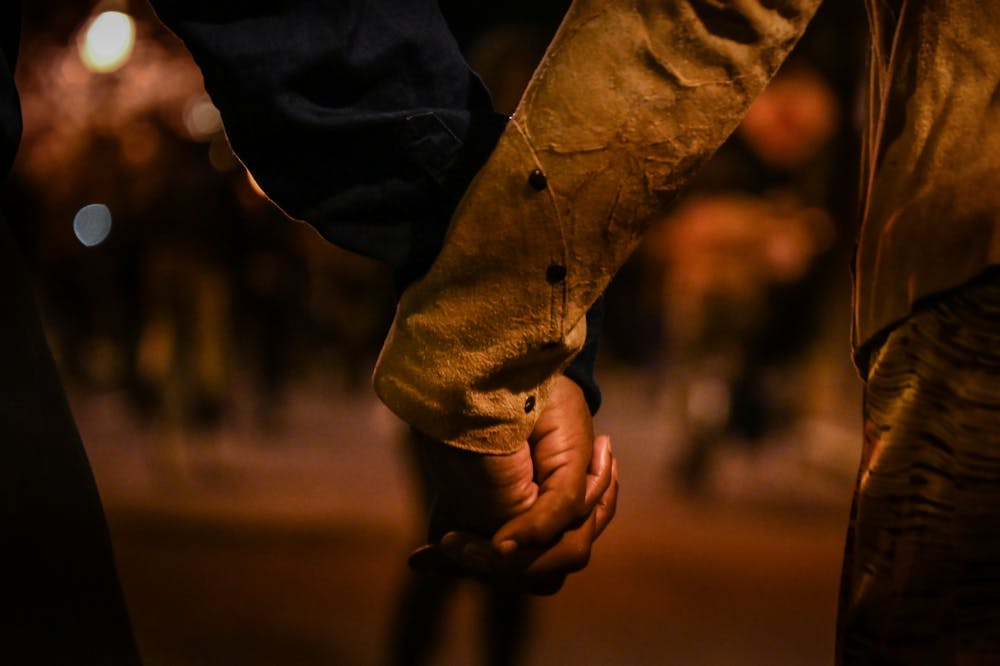This is part of a series on Juneteenth, the anniversary of the emancipation of enslaved people in the United States. In their columns, members of the community evaluate slavery, Penn’s relationship to it, and how this informs our understanding of race today.
Saturday marks the first occurrence of Juneteenth, the holiday celebrating emancipation in the United States, as a federally recognized holiday. However, Juneteenth is so much more; it is a celebration of righting historical wrongs, maintaining radical hope in the face of unimaginable atrocity, and honoring the sacrifices that Black Americans made for centuries to build our nation, seldom with recognition. In recent years, our understanding of both slavery and the role historical institutions played in fostering it has monumentally increased. Universities and other institutions across the country have played a large role in this reckoning.
Penn is by no means isolated from this national reckoning. By 2018, Penn & Slavery Project had determined that at least 75 of the university’s founding trustees had owned enslaved people, and that Penn’s medical school helped feed into the widespread scientific racism of the time. “I think it's important for students and the Penn community to understand that slavery was a national problem,” says VanJessica Gladney, a third-year PhD student in the Department of History. Gladney, who was also an undergraduate at Penn, was a researcher in the Penn & Slavery Project. When Penn makes claims about having the first student union, Gladney says that “we also need to think about the context around that history.” Thursday’s message from Penn’s administration acknowledging Juneteenth made no direct mention of Penn’s historical role in this atrocity. This email signals the latest example of Penn’s lack of proactiveness on issues surrounding race. That has to change.
On Juneteenth, slavery is perhaps the most obvious example of the University’s delay in responding to questions of racial justice. Only recently has Penn truly begun to discuss its role in slavery. As late as 2016, Penn’s Director of Media Relations told the Philadelphia Tribune that “Penn has explored this issue several times over the past few decades and found no direct University involvement with slavery or the slave trade." The following year, however, the Penn & Slavery Project discovered that this was, in fact, false.
However, slavery is far from the only issue on which Penn has not been proactive. Over the past few years, the University has faced enormous criticism from students and others regarding patterns of academic bias, systemic racial profiling by Penn police, and Penn Museum’s possession and careless handling of the remains of Black individuals. Although Penn has responded to many of these concerns, too often the response has been reactive, rather than proactive. In other words, Penn is not taking steps to actively be anti-racist.
Penn’s administration, as well as other decision makers, must change this. Change does not come overnight, but there are several steps the University can take to promote it. First, the University must continue to hold discussions on race, systemic racism, and privilege throughout the year. The University must also conduct reviews of both the University’s past and present, to ensure it does not take student activism for acknowledgment of historical wrongdoing to occur. Finally, the University must keep an open mind to proposed reforms dealing with, either directly or indirectly, racial justice. While the University does not necessarily have to adopt every idea proposed by activists, they should engage with groups such as Police Free Penn when considering questions of systemic reform.
Racism against Black Americans remains alive and well in the United States. The University should be commended for speaking out on issues of racial justice. However, too often have its actions been reactive rather than proactive. To truly be anti-racist, and to truly honor Juneteenth, the University must fix this.
Editorials represent the majority view of members of The Daily Pennsylvanian, Inc. Editorial Board, which meets regularly to discuss issues relevant to Penn's campus. Participants in these meetings are not involved in the reporting of articles on related topics.









